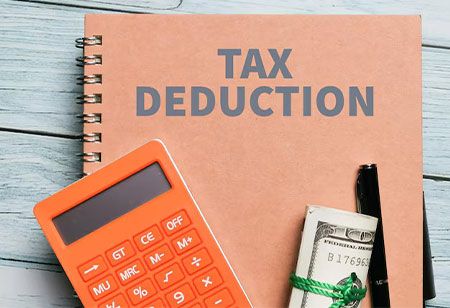
Tax deducted at source is an obligatory part of the Indian tax system that ensures income tax is collected as income is earned. Excessive TDS, unfortunately, may prove to be difficult for people who pay taxes as it affects their cash flows and financial strategies.
The good news is that the Indian Income Tax Department has come up with exemptions and deductions that can be used by individuals or firms to minimise all TDS deductions in accordance with the law.
This will give you five great as well as good to go tips on how you can avoid TDS reductions using exceptions, deductions according to the tax laws in India.
There are many investment options provided by Section 80C of the Income Tax Act that are eligible for deductions, among them being Employee Provident Fund (EPF), Public Provident Fund (PPF), Equity Linked Saving Schemes (ELSS), National Savings Certificate (NSC) and others. Through proper apportioning of resources among these financial instruments, it becomes possible for taxpayers to slash off their income subject to tax (taxable income) and hence cut back on TDS deductions. It is crucial to explore the numerous opportunities provided in Section 80C and customise investments according to personal financial targets with the aim of achieving maximum tax efficiency.
The employees under receipt of the House Rent Allowance (HRA) can find it beneficial to claim for reliefs provided under Section 10(13A) of the Income Tax Act. Their HRA receivable can be exempted If certain conditions are being fulfilled through production of rent receipts alongside other vital papers by taxpayers. By doing this, one is sure of decreasing TDS deductions that result from income that is subjected to tax. Follow what is required by the authority or have all necessary formal material so that one can save as much tax as possible.
If you are paying health insurance premium for yourself, family or parents then you can get deduction on these premiums under Section 80D of IT Act. Deduction allowable is Rs 25,000 for individuals aged below 60 years while it is Rs 50,000 for senior citizens. This enables them to secure their health while also enjoying lesser TDS deductions through purchase of expansive medical care plans following which it is adjusted against the amount due to reduce the taxes collected by the government. It is important to examine many different options for health insurance and to choose a plan that will offer the best coverage while also saving money on taxes.
Banks’ tax-saving fixed deposits offer another option for reducing TDS while benefiting from taxes too. You are allowed to make investments in these fixed deposits and deduct them from your taxable income in accordance with Section 80C of the Income Tax Act subject to a cap of ₹1.5 lakh. On the other hand, the good news is that interest accrued on such deposits attracts tax but if your total interest income for FY is less than ₹40,000 no TDS will be deducted stated here is that when someone has financial year total summing up of his interest payment from all sources goes beyond 40,000 Rs there will be payment of TDS on the same. Taxpayers can optimise their tax planning and minimise TDS liabilities by putting funds in tax-saving FDs in an astute manner.
Individuals, especially senior citizens, whose total income is below the taxable threshold can submit Form 15G or Form 15H to the deductor to prevent TDS deductions on interest income from fixed deposits, recurring deposits, or other investments. These forms declare that the taxpayer's total income is below the taxable limit, thereby exempting them from TDS deductions. However, it's crucial to ensure eligibility criteria are met and timely submission of these forms to avoid unnecessary TDS deductions.
We use cookies to ensure you get the best experience on our website. Read more...